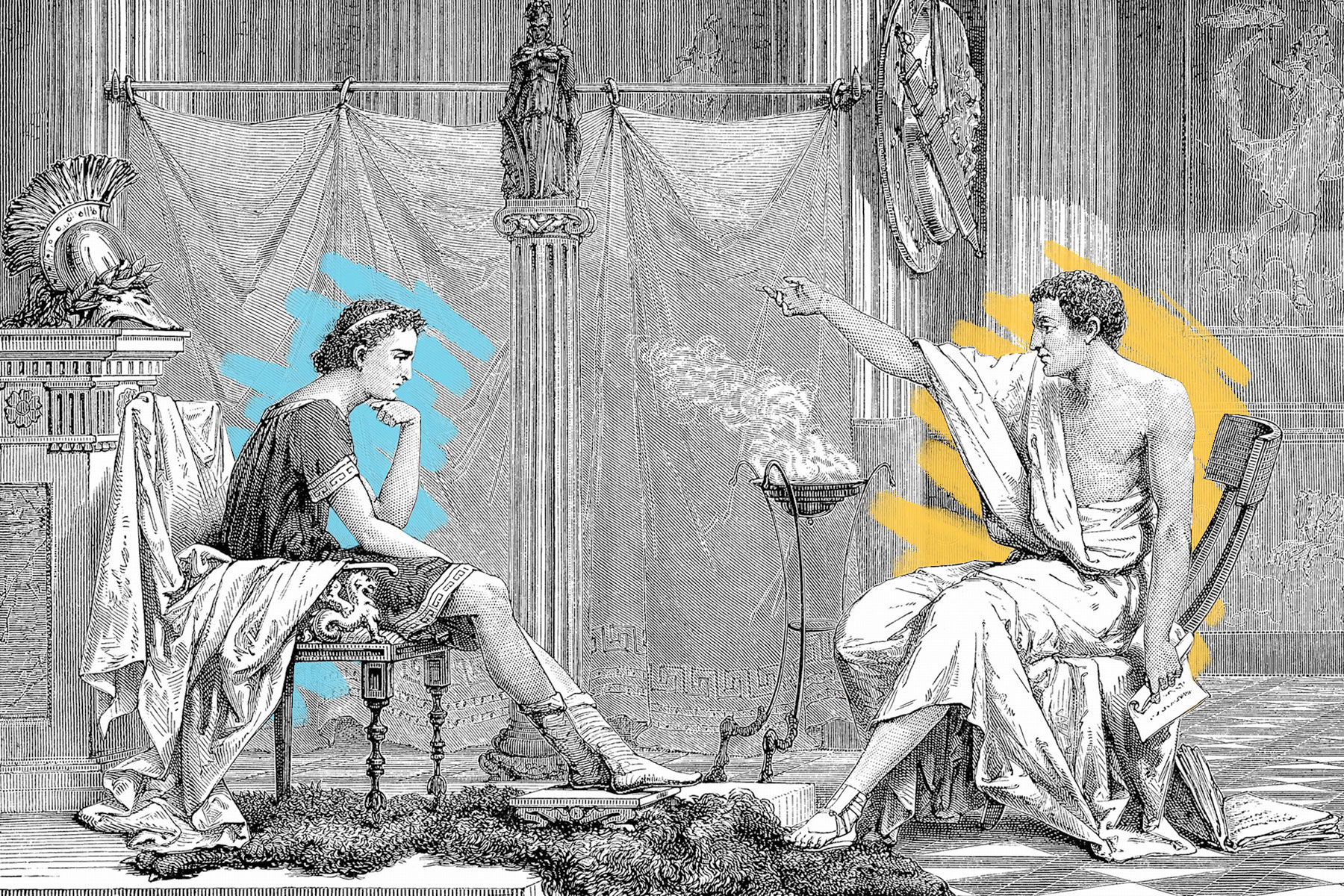Alexander the Great's famous teacher
Sunday, March 31, 2024
Around 343 BCE, King Philip II of Macedon called upon the prolific Greek philosopher Aristotle to tutor his 13-year-old son, Alexander III, who later became known as the brilliant military tactician Alexander the Great. |
| |
| |
|
 |
|
| A round 343 BCE, King Philip II of Macedon called upon the prolific Greek philosopher Aristotle to tutor his 13-year-old son, Alexander III, who later became known as the brilliant military tactician Alexander the Great. Philip II hired Aristotle in hopes of molding his young heir into a well-educated and cultured leader, fearing that military prowess alone wouldn't be enough to command respect from his subordinates. He trusted Aristotle in part because the philosopher's father, Nicomachus, once acted as the court physician for a previous Macedonian king. As payment for tutoring his son, Philip II promised to rebuild Aristotle's hometown of Stagira, which the king had captured and razed years earlier. |
|
|
| With everything in place, Aristotle and Alexander set out to study at the Nymphaeum (shrine of the Nymphs) in the remote village of Mieza, where they spent roughly three years together. Though few specifics are known about Aristotle's exact teachings, it's believed that he schooled the future ruler in many subjects, such as medicine, poetry, rhetoric, geometry, and even botany. (In fact, Alexander's future army included several botanists whose job it was to collect samples and study the new lands they conquered.) In 340 BCE, Philip II recalled Alexander back home, and the boy's time with Aristotle came to an end. Alexander went on to assume the Macedonian throne in 336 BCE, while Aristotle returned to Athens and established a new public school known as the Lyceum. |
|
 |  |
|
| Thank you for supporting our advertisers! |
|
| |
|
 |
|
By the Numbers |
|
| Completed Aristotelian works that have survived to modern times | | | 0 |
| | | Years Aristotle spent studying and teaching at Plato's Academy | | | 20 |
| | | Years Aristotle spent studying and teaching at Plato's Academy | | | 20 |
|
|
|
| Age at which Alexander the Great won his first military battle | | | 16 |
| | | Ancient cities named after Alexander the Great's horse Bucephalus | | | 1 |
| | | Ancient cities named after Alexander the Great's horse Bucephalus | | | 1 |
|
|
|
 |
|
 | | Did you know? |
|
|
Socrates didn't write down his philosophical thoughts. |
|
| Though his teachings laid the foundation for modern philosophy, the legendary Greek thinker Socrates never wrote down his thoughts, preferring to teach them verbally. It's said that Socrates believed writing to be an inferior form of dialogue that could be easily misinterpreted, and thus he preferred to stick to direct conversation so his beliefs could be more clearly expressed and debated. While Socrates avoided putting pen to paper, there are still many written interpretations of Socratic teachings that were penned by his students. Among them was his most devoted follower, Plato, who became a great philosopher in his own right and later taught Aristotle. Plato wrote many dialogues that featured a fictionalized version of Socrates, including the work Phaedrus. In that text, the character of Socrates is quoted as saying, "If men learn [writing], it will implant forgetfulness in their souls… because they rely on that which is written." |
|
| Thank you for supporting our advertisers! |
|
| |


posted by June Lesley at 4:00 AM










![]()
![]()






0 Comments:
Post a Comment
<< Home